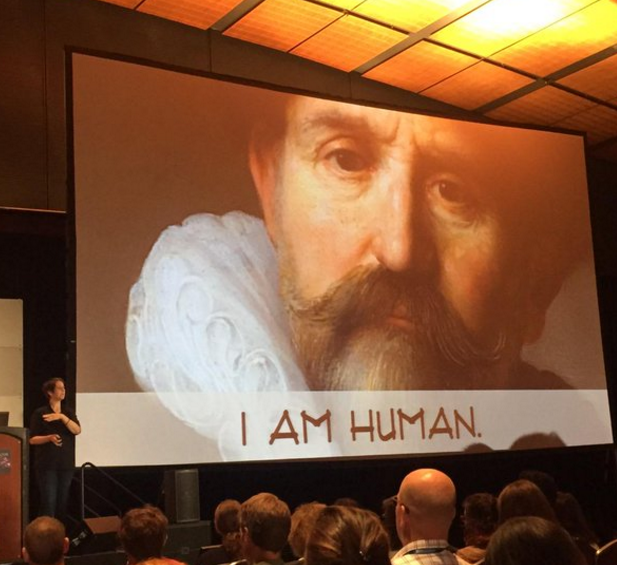These last few days have been filled with grossness and bad icky feelings way deep down, mostly of a nature directly attributable to being female and potentially fecund....
words words words
Words matter. Words can engage, encourage conversation, and foster understanding, but words can also shut others out.
One serious barrier to entry when it comes to social media is the jargon that goes around; whether it's all those wacky-sounding Web 2.0 start-up company names (Twitter, Pownce, Meebo, Zooomr, Zaftig...), one too many acronyms (API, RSS, SEO, CMS, CRM, CSNY...), or just familiar words that have been repurposed to unfamiliar tasks (astroturf, feed, AJAX...), the jargon can all too often put off newcomers, curious onlookers, and yes, the very decision-makers you are trying to evangelize about developing a social media strategy for your nonprofit.
Mike Sansone at Converstations is developing a glossary of Web 2.0 terms that promises to be very useful to both sides of the language barrier. (Hat tip to Geoff Livingston at Now is Gone for the link.)
It's not yet complete, and by its very nature it will always be a work in progress, but it's a much-needed resource and a handy reminder to think about how we speak and write, and think about who we might be excluding by using -- and not bothering to define -- insider terms.
Sure, you can look up the occasional new word or phrase on Wikipedia, but is the Web 2.0 novice likely to know that?
The other value in centralizing this sort of glossary of terms is so that the curious can arm themselves in advance, and stock up on definitions before attending that conference or listening to that pitch in the boardroom.
Our love of jargon is nothing new -- we love to use these words as signals that we're members of the same club, part of the same tribe, and have a certain number of shared experiences and cultural touchstones. It helps cement us as a family, and that's nice.
But the central themes of social media are openness, transparency, and inclusion. Let's be sure we're not being closed, opaque, and exclusive. Let's also not unintentionally hamstring our efforts to get others on board.
Mindlessly chanting our little Web 2.0 incantations blinds us to what we're really talking about, keeps us skimming the surface, and keeps us needlessly focused on fondling the hammer, rather than on building the house.
Lee LeFever at Common Craft does a great job of demystifying technology (his latest is on Twitter). How do you try to break down the language barrier?
.png?width=500&height=500&name=bd%20(3).png)
